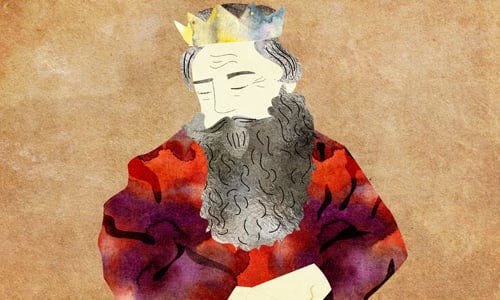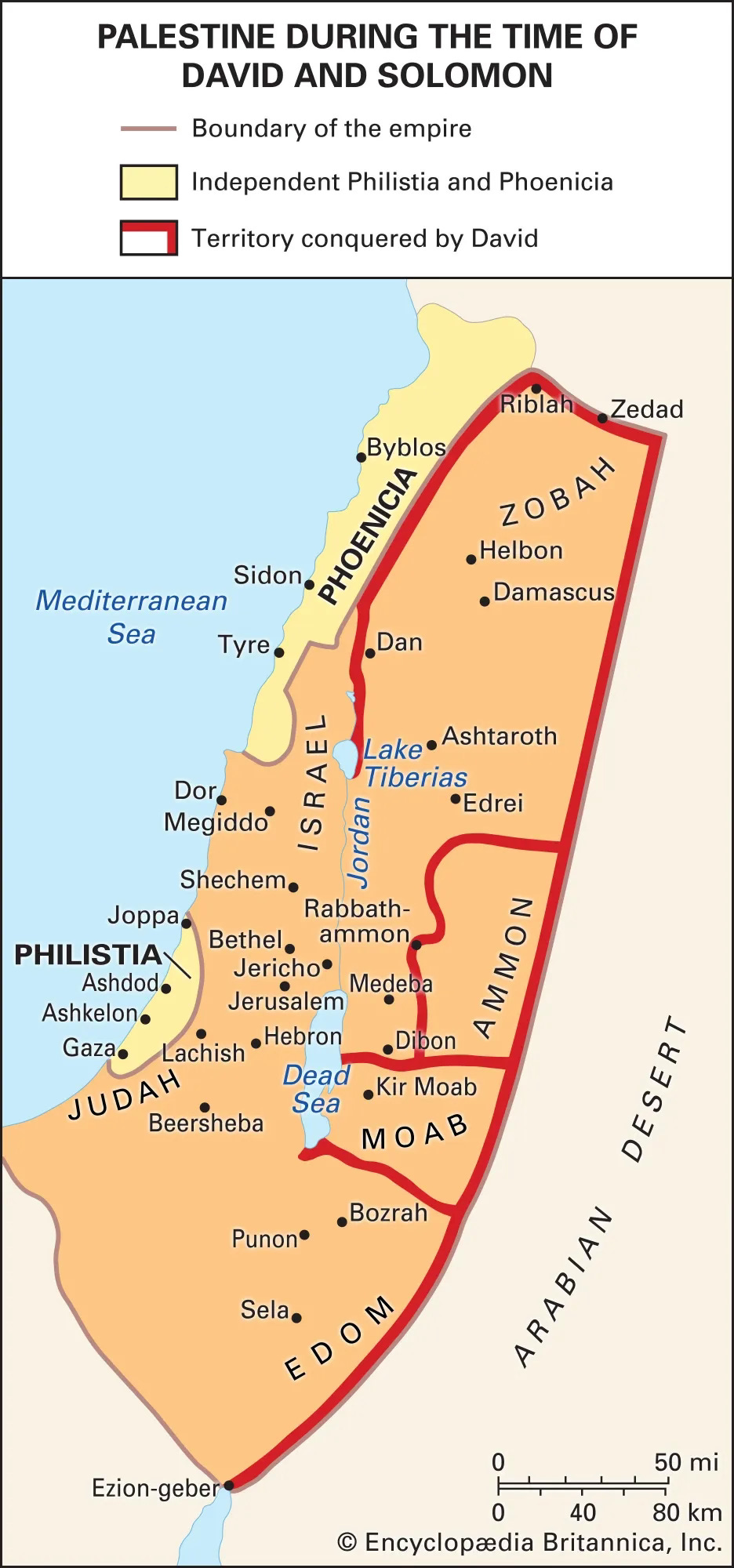The recent US election made me think about who the good leaders of my people have been.
Interestingly, because of the wandering nature of our ancestors, leaders run the gamut from tribal chiefs to priests to consuls to individuals to rabbis to philosophers to military generals. Think Abraham, Maimonides, Joshua, Judas Maccabee, Rabbi Akiba, and on and on. We could probably even zero in on a few women like Esther and Ruth, but that’s for another day.
I’m interested in King David who was highly influential in his time but a bit of a devil as well. His story is told in the Prophets section of the Old Testament along with that of Saul who preceded him and David’s son Solomon who followed him. Together they reigned for only a short period of time which many call “The Golden Age.” Under David particularly the Jews’ (then called Hebrews) influence and territory expanded.
When I learned of David’s story, I finally began to understand the references and attention that has been given to him through the years, why Michaelangelo sculpted him in Renaissance times, why there’s a King David Hotel in Jerusalem, and why as a child I went to see the movie David and Bathsheba starring Gregory Peck and Susan Hayward. Oh, and let’s not forget the story of the clever David killing the ten-foot-tall giant, Goliath with a slingshot, a legend every Jewish child learns about when he attends Sunday School.
Various sources describe David in different ways. The National Geographic Bible Series refers to him as “a giant slayer, a musician, a conqueror, and a king.” The Jewish Virtual Library describes him as a “warrior and a writer of psalms.” Chabad.org cites him as a “conqueror, pious, sweet singer, shepherd, the penitent.”
Briefly, David was one of eight sons born to Jesse, a farmer in Bethlehem. He was a shepherd who loved to sing and often accompanied himself with a harp (lyre). This is all told in the two Books of Samuel in the prophet section of the Old Testament that follows the Five Books of Moses (the Torah). At the time he was born, the Hebrews, as Jews were then known, had escaped from Egypt and were living in Canaan, the territory that is sometimes called The Promised Land and what is a combination of Palestine and Israel today. The Philistines were a nearby enemy tribe that often sparred with their Hebrew neighbors. The Philistines occupied a small territory known as Philista, (the origin for the name Palestine).
There were other tribal enemies to contend with as well. The Hebrews clustered together because of their common religious beliefs and culture, often different from the culture of the surrounding tribes. The Hebrews were divided into twelve tribes that each ruled relatively independently, ten were part of the Kingdom of Judah and two were designated as The Kingdom of Israel. The prophets of these tribes were the translators of a higher spirit sometimes called Yahweh, but eventually known as God. They communicated God’s wishes to the people. The prophet Samuel through God first anointed Saul, a popular leader to head the combined tribes. He did this reluctantly because the priests of that time were not in favor of anointing a king. But the people ruled, and Samuel accepted the peoples’ wishes. Saul turned out to have issues and then Samuel through God decided that David, the young shepherd and musician would be the right person to help Saul’s administer their country. That created a rivalry between the two, and two years after their first meeting, David took over the reigns.
David became king at the age of 30 and ruled over the twelve tribes of Israel for forty years, 33 of them in Jerusalem. His reign began in c. 1010 BCE and ended at his death in 971 BCE.
During his reign, he accomplished many things. A lot of attention has been focused on his military prowess, but in another part of the Bible, it’s referenced that he relied on his friends and family for the base of his support. He and Saul’s son Jonathan had a close friendship and David married Saul’s second daughter, both helpful in bringing David to the kingship so rapidly. In other words, David was a good politician. He is also lauded for expanding the Hebrew Empire and for moving its capital to Jerusalem where he could make it more competitive with the capitals of other surrounding kingdoms. It was left to his successor, his son Solomon, to build the first temple in Jerusalem after David’s death. Some experts believe that the best thing David did was to write more than seventy-three psalms, two of which are mentioned in the Christian New Testament and some of which are also mentioned in the Muslim Quaran. It is said in the Bible that David would turn to contemplation and to writing his psalms in between his “conquests.” He is also credited for uniting the twelve tribes of Israel by establishing individual administrations and militias for each of the tribes. Unfortunately, after his death, that unity deteriorated.
Personally, he was a bit of a philanderer. He had at least eleven wives, most notably Bathsheba, the wife of one of his generals. In a sneaky way he found a means of assuring Bathsheba’s husband’s death so he and Bathsheba could marry. He also had two sons that went awry and rebelled against their father in different ways. One raped a stepdaughter. The other (Absolam) formed armies to try to take over David’s control of the Kingdom.
Sources and evidence of David’s life are primarily restricted to Samuel I and II in the Prophets section of the Old Testament as well as to Kings I and Chronicles I also part of the Prophets section of the Bible. One recent remnant of an archeological dig discovered in 1993 further confirmed David’s contribution, but most of the historians have had to put together the pieces other than those in the Old Testament. Myth and conjecture have produced the remainder of the documentation throughout the centuries.
David made his mark. Whether we like his approach or not remains a discussion point all these thousands of years later.
Here is an excerpt from Psalm 8 that is believed to have been written by David and that happens to include the mention of the book A Little Lower Than the Angels assigned to me to read when I attended my confirmation class at my temple.
Psalm 8 by King David
“When I behold Thy heavens, the work of Thy fingers,
The moon and the stars which Thou hast established,
What is man, that Thou art mindful of him?
And the son of man, that Thou thinkest of him?
Yet Thou hast made him but little lower than the angels,
And hast crowned him with glory and honor,
Thou hast put all things into his power;
The fowl of the air, and the fish of the sea,
Whatsoever passeth through the paths of the seas.”
SOURCES:
“Why King David is one of the bible’s most Compelling Characters.” By Jean-Pierre Isbouts, National Geographic Bible Series, December 21, 2018.
“The Story of King David in the Bible” by Dovio Schochet. Chabad.org
“David, King of Israel,” by J. Coert Rylaarshdam. Encyclopedia Britannica.
“David.” “Davidic line.” Wikipedia.
Pathways Through the Bible by Mortimer J. Cohen, “ The Jewish Publication Society of America, Philadelphia, PA. 1946.
“In Search of King David’s Lost Empire” by Ruth Margalit. New Yorker Magazine. June 22, 2020
Josephus the Essential Writings: A Condensation of Jewish Antiquities and the Jewish War, Translated and Edited by Paul L. Maier, Kregel Publications, Grand Rapids, Michigan. 1988.
“Ancient Jewish History: The Hebrew Monarchy 1050 to 920 BCE.” “King David c. 1040 to c. 970.”
David: A Biography by Barbara Cohen, Clarion Books. New York 1995.



